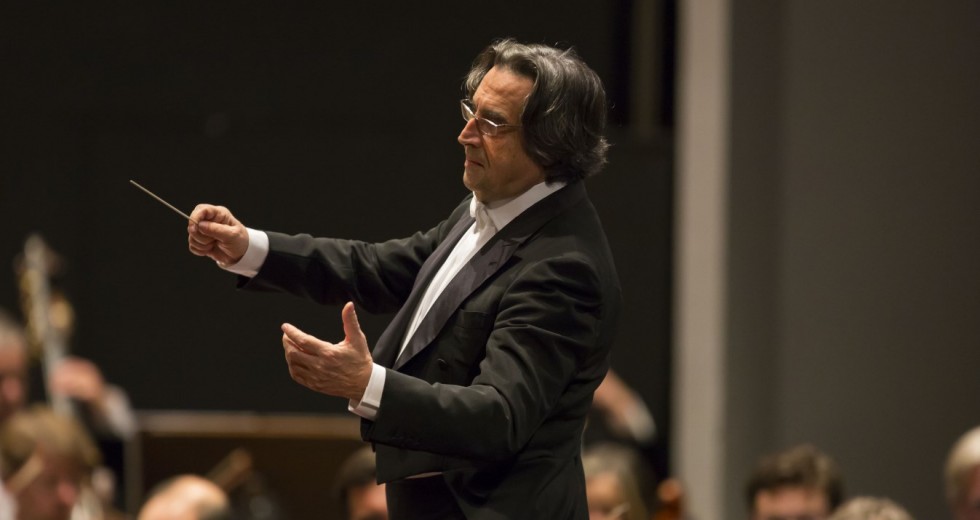
In anticipation of his first performances of Gustav Mahler’s music with the Chicago Symphony Orchestra, music director Riccardo Muti recently spoke with CSO program annotator Phillip Huscher about his views on this great composer.
HUSCHER: I know how carefully and thoroughly you study every score that you conduct. But Mahler’s symphonies are a special case, aren’t they?
MUTI: Mahler is a very deep composer, and to conduct his music well, you need a great knowledge of the technique of composition — even though Mahler specifies everything for the conductor. It’s not like a Beethoven or a Brahms symphony. Mahler gives you all the details about the way he wants the performance to be done.
But, as with every composer, even one as specific in his directions as Mahler, it is not enough simply to follow the indications on the page.
No, you must also understand the spirit of this great composer which represents not only the soul of central Europe, but the end of an entire empire, and in a way, also the end of a society of certain values. That’s the reason why in Mahler there is this pessimistic approach to life. It’s not negative — it’s just that there’s a pessimismo running through his music. Mahler always brings a kind of deep pain even in the moments where his music seems to be full of serenity or joy.
Riccardo Muti conducts the Chicago Symphony Orchestra in Mahler’s Symphony No. 1 on June 19-21.
Today it is very fashionable to conduct Mahler, but that was not always the case.
No. We had to wait for Bruno Walter, Willem Mengelberg and Leonard Bernstein to popularize this great composer who for many years was not very well-known. But thanks to these conductors, little by little, Mahler became more popular.
Was the complexity of his music the only reason it took so long to be accepted into the mainstream?
It was also for political reasons. For example, Cosima Wagner, the wife of Richard Wagner, didn’t want Mahler to be music director of the Vienna Staatsoper for anti-Semitic reasons. So what happened to Mahler, as to Mendelssohn, was the result of the blind attitude of people who we know very well from recent history.
In the past few decades, Mahler’s music has become extremely popular both with conductors and the public.
Today, I would say too popular, because practically every conductor wants to conduct Mahler. The few exceptions are those tied to certain German assolutismo, and they remain more focused on Bruckner or the Germanic tradition, and not as much on Mahler.
How do you explain Mahler’s overwhelming popularity today with conductors of all ages and backgrounds?
Mahler has been a blessing for many conductors, because, as a very famous artistic director said to me many, many years ago: Have you ever seen a conductor have a failure with Mahler? He meant that Mahler always gives the conductor the possibility for a great success with the public because of the character of his music, and in most cases, with the finale in particular — very brilliant and with few exceptions, very, very loud.
Your own experience with Mahler’s music goes back to early in your career.
I conducted practically all the lieder of Mahler starting when I was very young with Das Lied von der Erde to the Rückert Lieder with Christa Ludwig with La Scala in Vienna. In Bologna, in one of my first concerts ever, I conducted the Lieder eines fahrenden Gesellen with the great Maureen Forrester, the mezzo-soprano who sang very often with Bruno Walter. And over the years, I recorded two symphonies by Mahler: the First Symphony many years ago with the Philadelphia Orchestra (click here to listen via Spotify/lastFM), and Symphony No. 4 with the Vienna Philharmonic, which was recorded live during the Mahler Festival in Amsterdam in the Concertgebouw Hall.
Nevertheless, your name is still more often connected to the Bruckner symphonies, for example, than those by Mahler.
You must realize that my repertoire goes from Bach, Scarlatti and Hasse to the contemporary composers. You have to make choices at a certain point, and, as everybody knows, one life is not enough to learn even one percent of the music that has been written.
Phillip Huscher is the program annotator for the Chicago Symphony Orchestra.